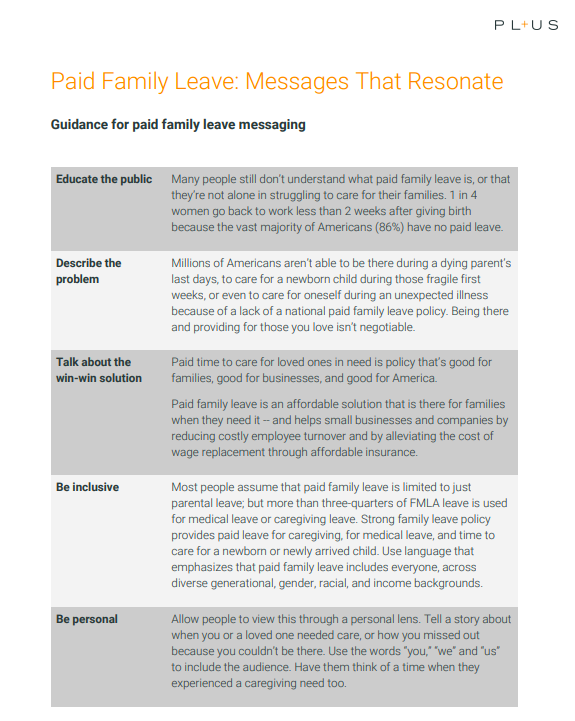Paid Family Leave: Why It Matters
Issue brief on paid family leave policy
Our lack of a national paid leave policy affects families, women’s ability to fully participate in the labor market, and U.S. economic growth. Americans are moving away from family to find work, leaving them without support when a health crisis hits. Millions of families struggle with being able to care for their senior relatives -- an aging population that will double in the next 20 years.
Paid Family Leave: Messages That Resonate
Connecting paid family leave with our economy, health care, and families
Many voters still don’t understand what paid family leave is, or that they’re not alone in struggling to care for their families. 1 in 4 women go back to work less than 2 weeks after giving birth because the vast majority of Americans (86%) have no paid leave.
Click to view the issue brief.
Making Caregiving Work for America’s Families
How our caregiving crisis impacts seniors and families - and solutions to address the growing need of families.
1 in 6 Americans provide unpaid care for an aging or chronically ill parent, or a person with disabilities. And with 10,000 people in the U.S. turning 65 every day the need for time to care for our loved ones is only increasing.
Click to view the issue brief.
Women's Economic Empowerment and Paid Family Leave
Strong, accessible, gender-neutral paid family leave policies empower women in the workplace and support economic security.
Women are grossly underrepresented in leadership at the workplace, are less likely to advance in their careers than men, and experience a widening pay gap as their careers progress.
Photo credit: Rifqy on Flickr





